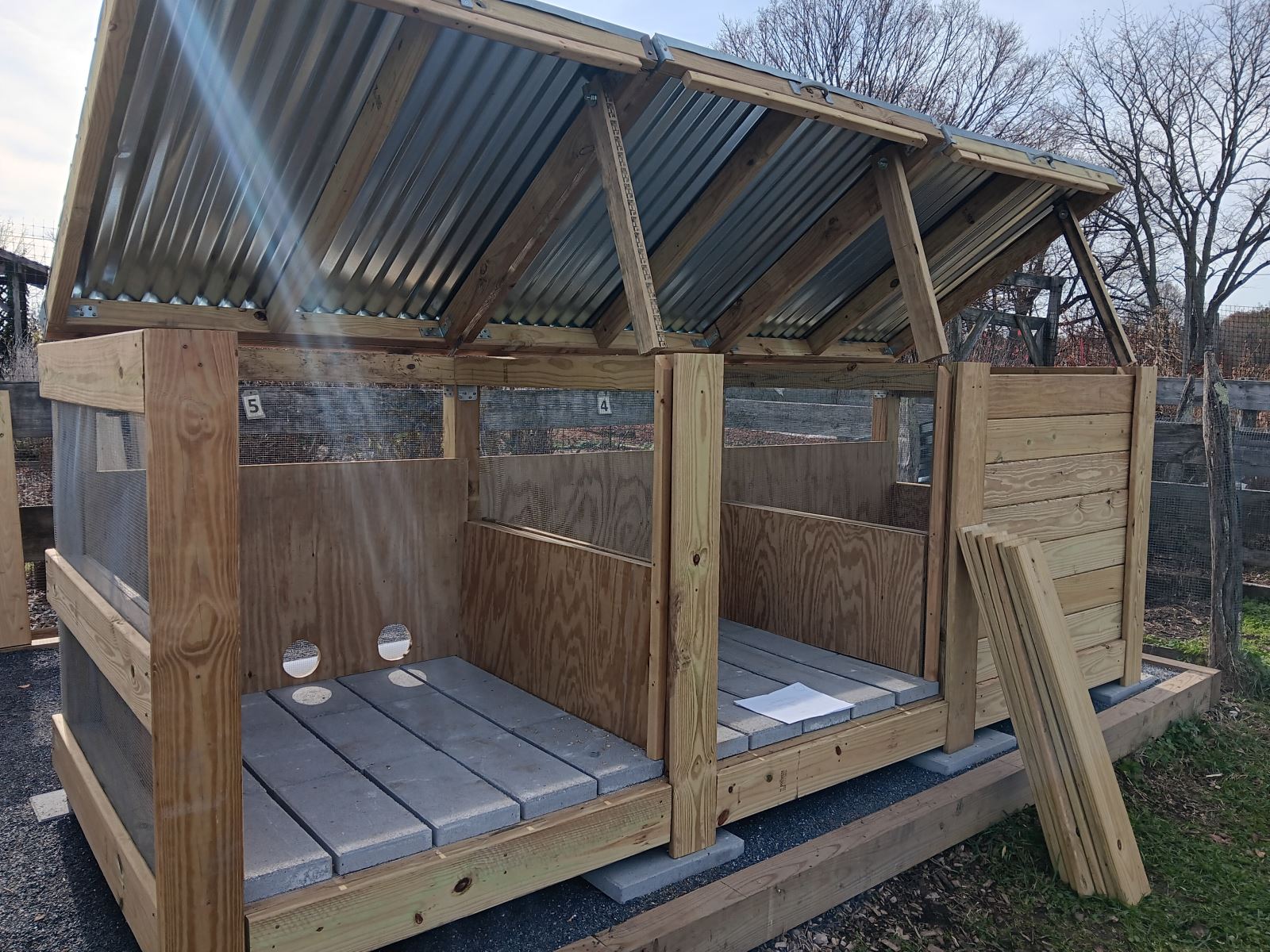The Composting Education Hub (CEH)
.jpg)
The County does not currently have a municipal food composting facility, but local zoning rules allow farmers to receive off-site food scraps for composting as a strategy to help the county meet its waste diversion goals. However, there is a need for hands-on training to put farmers who want to compost on the path to success using best practices. There is also a need to both increase support for residents who want to compost at home and for composting at schools and community gardens.
The goals of the Composting Education Hub are to: cultivate a culture of composting, increase the number of residents who compost, increase the number of community composters, increase the number of farmers who compost at a larger scale, and demonstrate how to create local soil health, local community engagement, and promote local nutrition for our residents.Nitrogen-rich organic materials, "greens," are collected from the Master Gardener Demonstration Garden, and food scraps from Manna Food Center and carbon-rich feedstocks, "browns," are obtained to produce the compost. The compost is then used in the Demonstration Garden, and some of the produce grown in the garden is donated back to Manna Food Center. The CEH helps environmental and equity goals by its support in closing the loop of recycling local organic materials. By composting the food scraps of produce grown nearby, it helps rebuild the local soil health to grow better quality food that then supports local initiatives in food accessibility and education.
The site is designed to demonstrate how to compost food scraps using a variety of methods, including DEP's recommended home composting containers (the Earth Machine and the Hot Frog Dual Chamber Tumbler). The solar powered three-bin system is an example of how to increase composting production and produce quality compost for larger scale operations, such as on farms.
The CEH was made possible by funding from the U.S. Department of Agriculture (USDA) and support from the Institute for Local Self Reliance, Eco City Farms, Montgomery County Master Gardeners and the Montgomery County Office of Agriculture.

The CEH is where Master Gardeners, county residents, and farmers will be trained to become Extension Composters through a multi-level program created by the Institute for Local Self Reliance, University of Maryland Extension Master Gardener Program and the Office of Agriculture. Extension Composters will teach residents how to successfully compost food scraps, the benefits of composting, and how to use compost. Farmers will receive training about state and local rules regarding on-farm composting of food scraps, system siting and design, and best management practices to be able to establish composting skills and operations that can be a source of income and create soil amendments for their farms.
For more information or to find out about upcoming workshops, contact [email protected] to be added to the mailing list.
The 2025 Extension Composter course will take place online and in-person at the Agricultural History Farm Park on March 8, 15, and 22. Visit the Extension Composter course webpage to learn more and register.
For more information about the CEH and the Master Composter Training Program, contact the Montgomery County Office of Agriculture.
